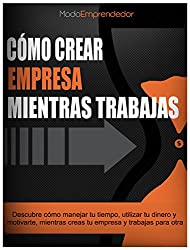
Although the lack of money can NOT be an impediment to create your company, it is clear that learning how to save to have enough money, facilitates the process.
It is not always possible to get investment, so a path that you can surely use is to use your own money.
You may be thinking that you don’t have enough, but I assure you that you do. All you have to do is learn how to save.
We know what it means to save, the only thing we need to know is What. Is it difficult for you to know how to save? Follow these steps to get it:
How to save money when my salary is not enough for me.
1. Monitor your monthly expenses.
For a month, identify in full detail what you spend your money on. Don’t omit anything. So you can identify if you are spending more on things that are not worth it.
In addition, this will allow you to know exactly how much you can allocate to savings.
Also read: How to make a simple budget using these 3 categories.
2. Set a savings goal.
To learn how to save money, you should start by setting a savings goal. It must be measurable, achievable (realistic) and timely. You may be feeling ambitious and setting your savings goal too high, but keep in mind that doing so can set you up for failure.
Think of a goal that you can achieve in 12 months. You must have self-discipline and sacrifice (in your expenses) but after all it is a goal. What can we achieve if we do not put anything on our part?
Find a friend who can do the bookkeeping and/or write the goal where you can always see it. That will be your reminder.
Also read: How to achieve your goals.
3. Decide where you are going to save.
All banks have savings accounts. Find out which one is the best. Rates vary from bank to bank and any extra pennies count toward reaching your goal.
Also read: How to make a quick and easy budget for your life.
4. Make saving automatic.
It is not easy to allocate a part of our money for savings each month. At the beginning we have all the motivation but a few months later we can “fail”. So the best thing is to take that responsibility off of us.
Many banks can do the process automatically, so look into that as well.
5. Establish an emergency fund.
We are not exempt from mishaps and the objective here is to be able to save to facilitate our process of starting a business.
If you lose your job or face a medical emergency and need money, you’re going to take what you’re saving for your business. Unless you know how to create an emergency fund and go to it when necessary.
6. Spend wisely.
When making purchases there are things that you can take into account:
- Compare prices before buying. Many stores have the prices of their products on a website, so it’s simple.
- Use coupons.
- Be clear about what you are going to buy and do not give in to temptations. If you go to the supermarket without being clear about what you need, you end up putting many things in the cart that at the moment seem necessary but are actually not. Make a list and stick to it.
7. Use apps.
To know how to save money, you can help yourself with many tools that we have at your disposal. For example, apps. There are apps for just about everything, and money management is no exception.
8. Measure your progress.
Weekly measure how your expenses are going. Are they going according to what you proposed? Remember that you save first and what is left goes to your expenses, not the other way around.
If in your analysis you see that you can save a little more, do it!
9. To keep in mind.
Don’t expect to have the money to get started. While you save, you can get a lot of work done: Investigate your niche, “spy” on your competition, define your communication and value proposition; anyway. Don’t let money become an excuse. This is the perfect moment.
And remember, if you are really interested in creating your own business, you can read our book “How to create a company while working: Discover how to manage your time, manage your money and motivate yourself while creating a company and working for another” , where you will find all the information you need to found your own company, without having to leave your job.


